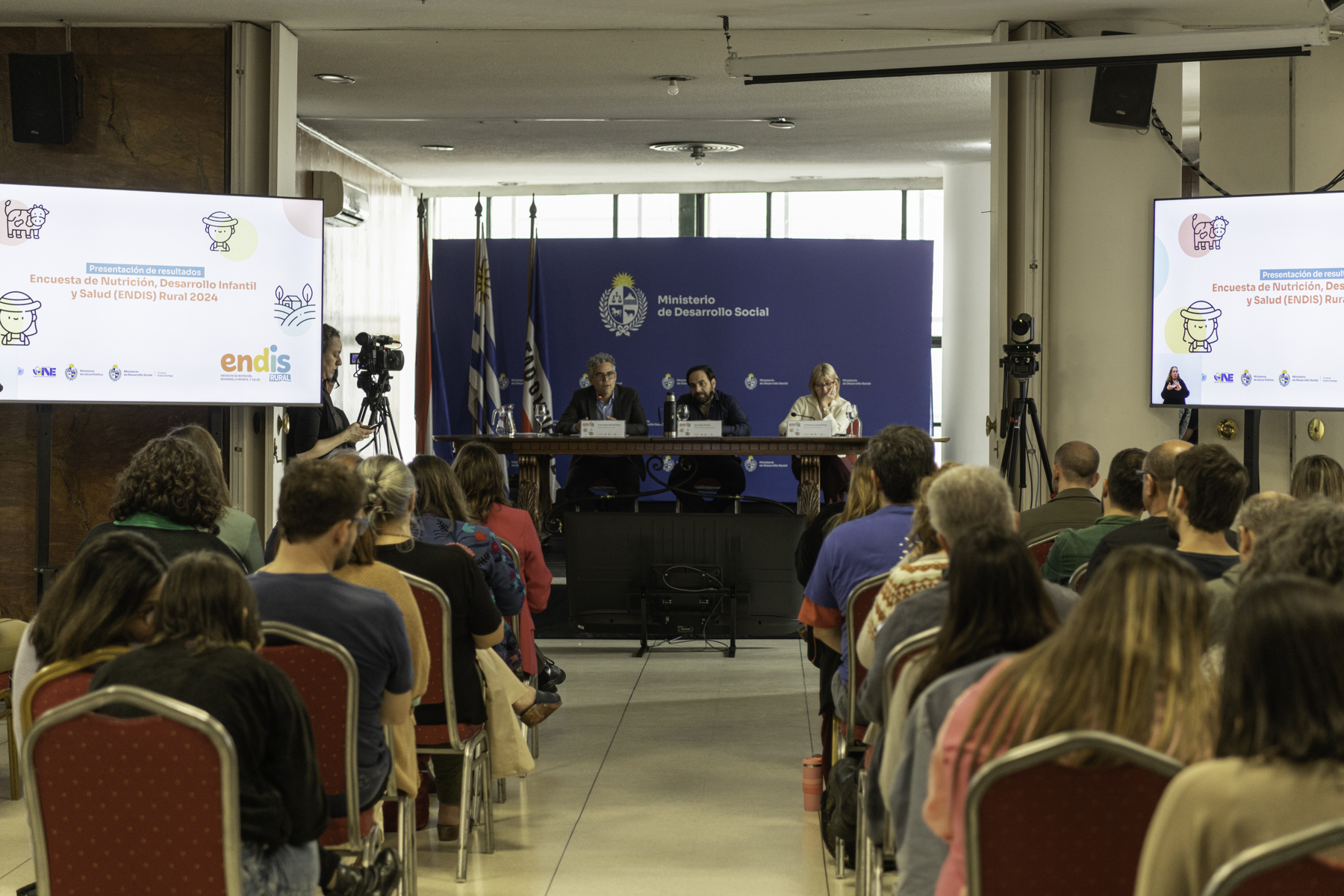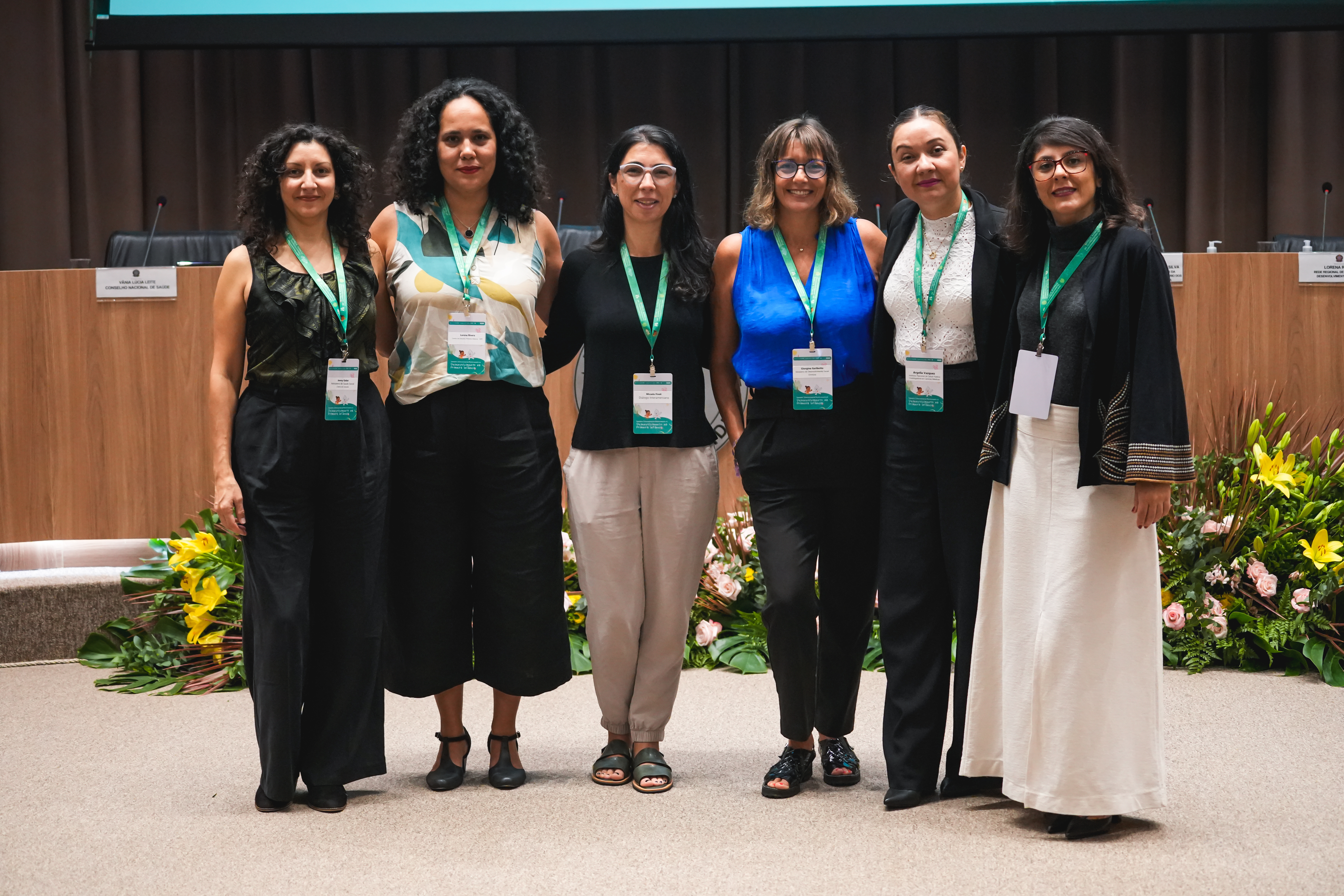
The study provides the first-ever overview of the situation of children aged 0 to 4 living in towns with fewer than 5,000 inhabitants and in scattered rural areas. The data provide key insights for reducing territorial inequalities and strengthening early childhood public policies.
All documentation and recordings of the presentation are available at the following link: ENDIS RURAL
Presentation of ENDIS Rural 2024: a milestone in early childhood information in Uruguay
Read more
On April 29, the Brazilian Ministry of Health, together with the Inter-American Dialogue, UNICEF, REMDI, the Maria Cecilia Souto Vidigal Foundation, the José Luiz Egydio Setúbal Foundation, and the Pan American Health Organization (PAHO), organized the International Seminar on Monitoring Early Childhood Development at PAHO headquarters in Brasilia.
The seminar presented the experiences, challenges, and policy instruments for assessing early childhood development in several Latin American countries, including Brazil, Chile, Uruguay and Mexico. The meeting allowed for a specialized discussion and exchange of knowledge on child development. Different actors from the public and private sectors, international organizations and civil society gained valuable knowledge on actions to improve public policies for early childhood and strengthened capacities for regional cooperation.
In addition, REMDI-established in 2016 as a network to facilitate the exchange of experience and assistance in early childhood development among Latin American countries-was represented by Lorena Rivera, Executive Director of the Center for Early Childhood Studies (CEPI) of Chile, Giorgina Garibotto, Director of Knowledge Management of Uruguay Crece Contigo of the Ministry of Social Development, Argelia Vázquez Salas, Researcher at the Population Health Research Center of the National Institute of Public Health of Mexico, and Jenny Encina, Head of the Social Reality Analysis Department, Social Observatory Division, of the Ministry of Social Development and Family of Chile.
The day before the seminar, international organizations, civil society actors and government representatives from Brazil, Chile, El Salvador, Honduras, Mexico, Peru, the Dominican Republic, and Uruguay met to discuss regional advances in early childhood development, such as individual and national level measurement of health and education. In addition, stakeholders discussed future measurement challenges for Latin America, such as the need to establish sustainable cooperation systems for the exchange of knowledge and technical assistance to enable consistent assessments across countries. In her closing message, Finoli stated that "In recent years, the region has seen progress in the construction of child development measurement systems; we see that more is being measured and it is being measured better. What we need to do now is to advance in the plans for using the information collected and to generate a true culture of evidence use".
International Seminar on Early Childhood Development Monitoring in Brazil
Read more
The purpose of this document is to evaluate evaluate the association between trajectories of attendance to the initial education program of Instituto Mexicano del Seguro Social (GIMSS) during 2006-2010 and academic achievement in elementary school during 2009-2013.